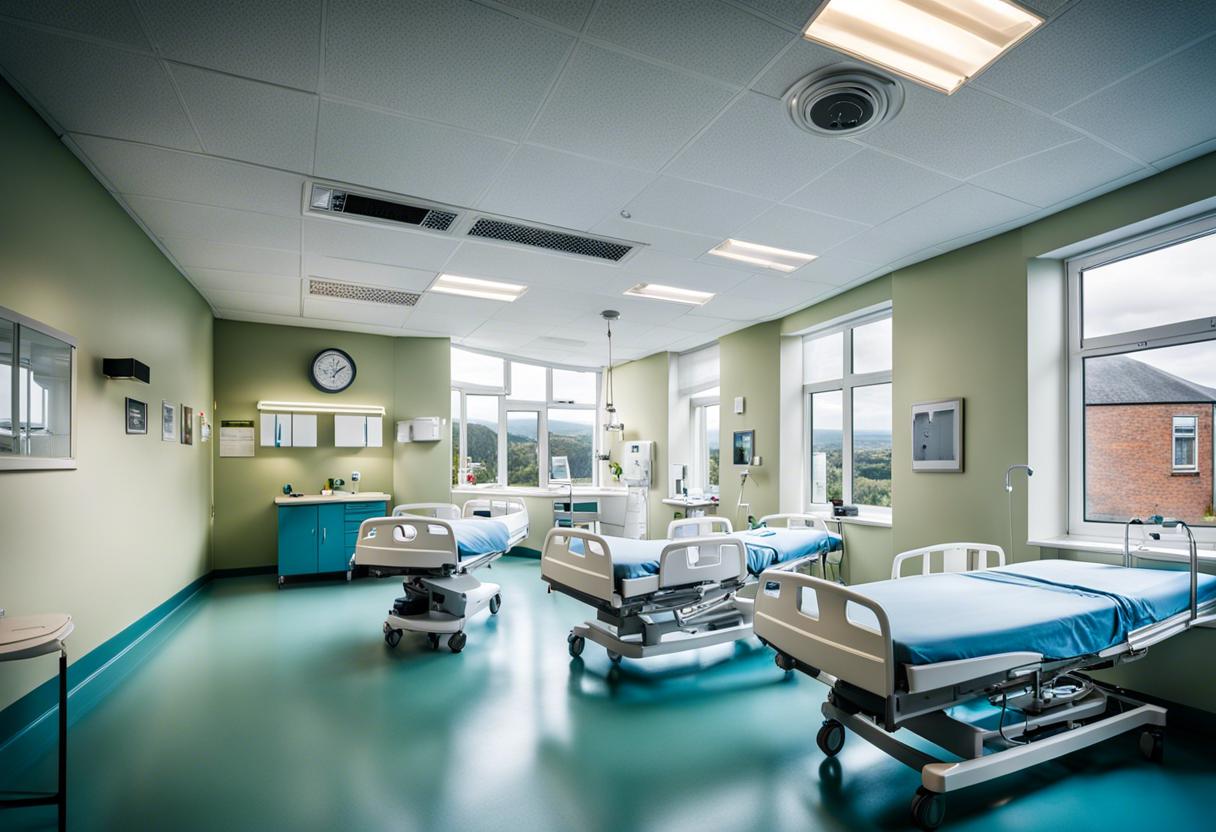Medical practitioners hired on a locum basis in Northern Ireland are receiving up to £1,000 daily from GP offices that are grappling with various challenges, as indicated in a report from a regulatory body. This inflated compensation is having disruptive effects on the market, especially for other clinics attempting to hire temporary workers.
The report released today by the Northern Ireland Audit Office (NIAO) revealed that one third of GP practices considered “at risk” had resorted to crisis assistance in the past four years to deal with concerns related to manpower and finances.
Long-lasting tendencies such as an elderly population, soaring hospital wait times, and the repercussions of Covid have resulted in “extreme pressures”, according to the report. The study titled Access to General Practice in Northern Ireland found that during 2022-23, just slightly less than 50 percent of all GP interactions happened in person, mirroring the scenario in England during the pandemic peak, with the remainder implemented through phone or video.
As of March the previous year, in-person appointments made up “about 70% of activity in England”, the report found. Northern Ireland has seen a near 9% increment in the total number of GP professionals between 2018 and 2023, however, the auditors warned that these numbers could be misleading, hiding the adjusted patterns of GP roles which indicate an overall regression in the number of full-time roles.
The Auditor General, Dorinnia Carville, has emphasised the dire need for comprehensive, long-term strategies to address the prevailing crisis, criticising most actions taken so far as being expensive short-term solutions burdening public finances.
She further noted that there has been a significant delay in implementing more beneficial changes, like the proposed deployment of multidisciplinary teams to assist GPs, causing patients to miss out on timely aid and needed treatments.
The research analysed 13 clinics which had either given up their contracts or served notice of their intention to do so, with 5 being taken over by Health and Social Care Trusts. The report pointed out that such scenarios of Trusts assuming contractor roles often led to a notable hike in costs.
Trusts have a variety of staff available to keep GP practices operational, but rely heavily on hiring locum doctors. The pressing demand for locums in demanding practices has led to substantial payment rates, with daily sums escalating to as much as £1,000. While it temporarily keeps the practice afloat, it unbalances the locum market for the rest.
According to stakeholders, the Northern Ireland Audit Office (NIAO) announced that the Department of Health in Stormont had increased GP training slots from 65 to 121 between 2014 and 2024. Despite this increase, the majority of these positions were filled by international medical graduates. Unfortunately, these individuals are less likely to stay on in Northern Ireland after their training, indicating a need for additional strategies to retain them.
The report also criticised the slow pace of deploying multidisciplinary teams (MDTs) in primary care environments. Initiated in 2018, MDTs envisaged a team of various healthcare professionals working together with GPs to extend services in primary and community care, thereby enhancing patient care. The department aimed to introduce the service across a span of five years.
However, as of March 2023, full MDT implementation had only been achieved in one out of 17 GP federation areas in Northern Ireland, with partial implementation in another seven areas. Consequently, merely 8 per cent (around 161,000) registered patients have access to the full benefits of MDT roles.
The report pointed out deficiencies in accessible, certified workers as a significant stumbling block in the MDT rollout. It predicted a further annual £91 million would be needed to maintain a comprehensive MDT programme.
With no swift or uncomplicated resolutions existing for these issues, Ms Carville emphasised the urgency to devise sustainable, long-term strategies to combat the considerable challenges facing GP services in Northern Ireland.

